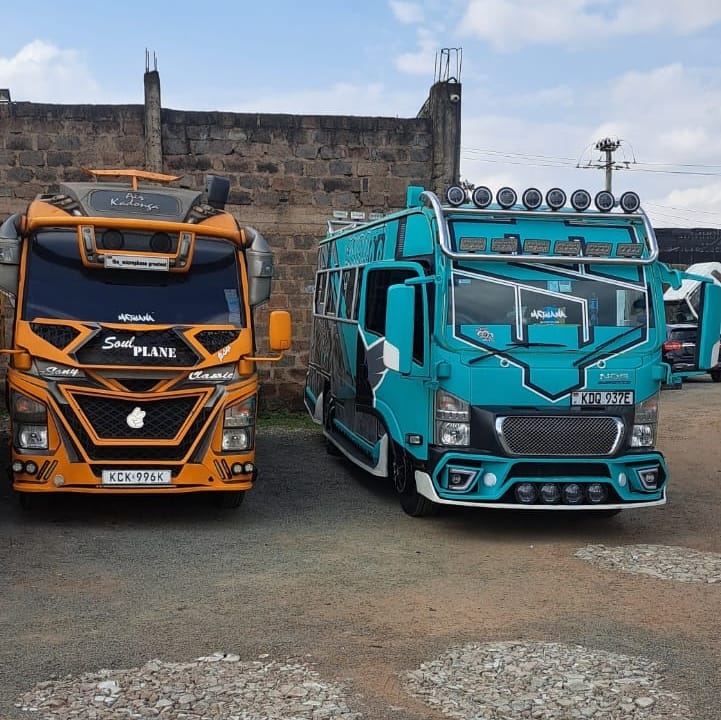
Kenya’s colorful public transport buses capitalize on partying foreign tourists

Kenya’s public service vehicles, known locally as “matatus,” are one of the East African country’s most distinct modes of transportation. Matatus are also a key part of the culture.
These vehicles, mostly 33-seater buses, start as chassis before undergoing extensive modifications, including offset rims, colorful graffiti, loud music, and numerous flat-screen TVs.
While they are primarily used to move passengers along predetermined routes, a Kenyan entrepreneur has found a unique way to capitalize on their popularity.
Brian Wanyama founded Matwana Matatu Culture, an organization dedicated to preserving this unique aspect of Kenyan culture. In addition to capturing and sharing it with the world, Wanyama also runs the Matatu Party Kruza.
Speaking to CGTN Africa, Wanyama said that they cater to domestic and foreign tourists.
“Kenyans prefer road trips while we do city tours for foreigners,” he said.
The entrepreneur disclosed that they mainly acquire clients for the tours through social media and referrals, and he highlighted the impact of tourists on the transport industry players.
“Matatu owners who have invested in good vehicles make good income as the Party Kruza package is more profitable than carrying passengers like usual. Aside from the financial benefits, the crews are also exposed to handling different types of clients, which sharpens their customer service skills
Racquel Wachira, who runs Heels and Wheels Africa, specializes in organizing road trips within the country and teaching matatu crews etiquette.
“The touts have a reputation for mistreating passengers, and our mission is to change the negative perception. We partner with matatu associations for the training, and the impact has been profound.”
Wachira noted that the the road trips benefit other businesses outside the transport industry, including nightclubs and eateries.
Wanyama and Wachira said they use their experience in the matatu industry to select the best vehicles based on clients’ preferences.
“Some like the TVs, while others prefer loud music and we know which vehicle to pick,” Wachira said.
The least amount payable by each passenger is Sh 1,000 and the 33-seater buses need a minimum of 10 passengers for the city cruise.
Just like any business, they also face challenges.
“Some matatu crew members don’t know how to handle clients professionally but we train them. We also face competition from people copying our business model and must strive to remain ahead of the pack by offering outstanding customer experiences. Also, some establishments where we take clients discriminate against race,” Wanyama said.
Wachira, on the other hand, said that ensuring discipline during road trips is a challenge.
“Some passengers might want to hang at the door or put their heads outside the windows, which is risky and against the traffic rules. However, we set ground rules that they must agree to before the trips.”
Alice Whitman, a tourist from the U.S., said riding in a matatu on a guided city tour was an unforgettable experience.
“A friend who visited Kenya recommended it and it was worth the buzz. I love the creativity and unique designs and the matatus offer an authentic feel of the Nairobi culture,” she said.
However, she noted that there was room for improvement in customer service.






